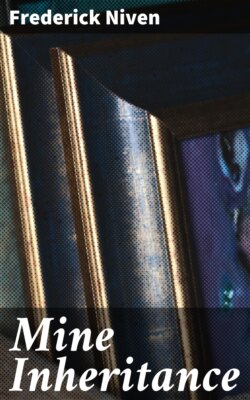Читать книгу Mine Inheritance - Frederick Niven - Страница 16
На сайте Литреса книга снята с продажи.
I
ОглавлениеTable of Contents
On the west side of the Red River, below Assiniboine, a prairie fire had recently run and burnt out the bush. On that triangle of land between these rivers, a triangle at the point of confluence, protected on both sides as it were by the deep moat of both streams, we started to build. There was a cabin already there belonging to the Hudson’s Bay Company, and another building close to it that had been used as a smithy. Peter Fidler, I was told, had lived in the cabin when making his surveys for Lord Selkirk’s purchase; but many more dwellings were required by Captain Macdonell.
Diverse were our duties. Some were felling and hauling trees, others building cabins with these; others again were ploughing, hoeing, sowing winter wheat, harrowing on the lands to be allotted to the settlers when they came.
On the 27th of October I accompanied the Governor some way down river from Point Douglas, in search of some of Peter Fidler’s survey posts. That was the name he had given to the promontory on Assiniboine’s north bank and Red River’s west. It was his intention, autumn wearing on, to start the erection of individual small cabins on the farm allotments, cabins that would be at least temporary homes for the settlers.
Suddenly we stood still and raised our heads, listening.
“It sounds like sheep, sir,” said I.
“Sheep! Well, it does, but how——”
The sound that had arrested us came again.
“That was the bleating of sheep,” I declared.
“Sheep—AND—bagpipes!” exclaimed Miles Macdonell.
With his long stride he led the way to the bank; and there we saw them coming—the first settlers. In the leading boat a man was playing on the pipes.
“One—two—three——” I found myself counting the boats as they came round the bend, “four—five——”
“There are the sheep we heard,” said the Governor, and sure enough in two of the boats I saw the woolly backs, and the black mouths from which came the plaintive wavering cries. Eleven boats and three canoes made the total.
“Well, there they are!” said Captain Macdonell. “They are here, which is better for them than wintering by Hudson Bay even if we lack the needed staple of pemican for them.”
Half an hour later, on that triangle of land, seventy-one men, women, and children were safely landed and seemed all to be raising their voices together in a hubbub of Gaelic and Erse (for a few were from Ireland), some in rejoicing, some in lamentation.
